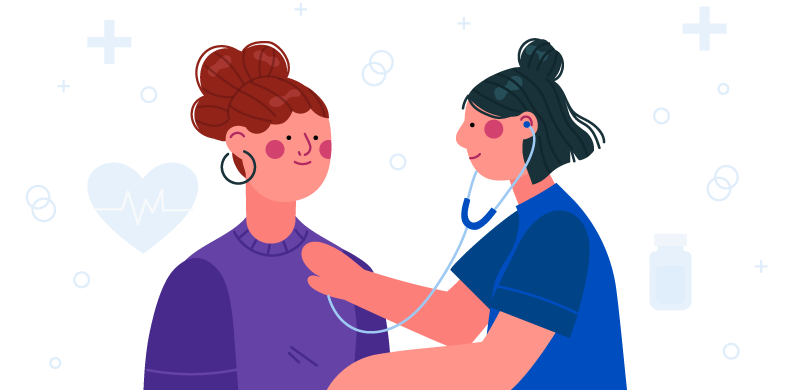Gender inequalities in healthcare refers to the inequitable access, care and outcomes based on one’s gender. Women experience increased barriers and decreased access and outcomes, comparative to men. Systemic health inequities occur based on gender, race, age, and sexuality, just to name a few, and today we are going to highlight what some of those inequities have looked like for women.
- Women are more likely to report a higher level of health problems over their lifetime than men; the main causes of early or premature death may be gender related but insufficient research has been done to determine how great that factor is. However, social factors such as type of employment, lower pay for work done, work/home/childcare dichotomy etc. may account for conditions which leads to lower levels of health.
- Women are more likely to report mental health issues but not necessarily get the help they need. Women are more likely to attempt suicide but not complete the act, possibly as a cry for help that they are not able to access adequate treatment.
- Gender differences in mental health and how disorders happen are different for men and women, but this has not been recognized until the last 20 years or so, so much of the research and supports are based on men’s needs.
- In the past, many scientists believed that males made the “best” test subjects because they do not have menstrual cycles and cannot become pregnant. This meant that a vast amount of research only involved male participants and it is only recently that it has been recognized that this renders much of the research not as applicable for women.
- Women are much more likely than men to be subject to mental and physical violence, often at the hands of men. On top of that, women face a societal stigma and judgement for being the victims of assault, particularly sexual assault.
- Women generally experience lower socioeconomical status than men as they are not given the same education opportunities, are more likely to suffer the consequences of young motherhood, and may face further discrimination if they are BIPOC or trans. For example, the bulk of healthcare in Canada is done by women, in roles such as nurses, social workers and PSW’s. In contrast, men are more likely to hold roles of physicians, earning a far superior wage.
- Generally, women are more likely to have more menial employment than men and also be subjected to work stressors such as single parenthood, childcare and looking after the home. This can lead to increases in mental health issues.

This is just a small snapshot of the gender-based inequities women experience when accessing, or providing, healthcare. When intersecting identities are considered, such as race and sexuality, the inequities get even worse. Federated Health Charities acknowledges the systemic health equities that exists and strives to be a part of the education, awareness and funding support needed to work towards greater health equity for all.
Reference sources include:
- Gender differences in health: a Canadian study of the psycho-social, structural and behavioural determinants of health (Carleton University)
- The Voice of Equity at the Munk School of Global Affairs and Public Policy
The Conversation: Canada’s health-care crisis is gendered: how the burden of care falls to women








